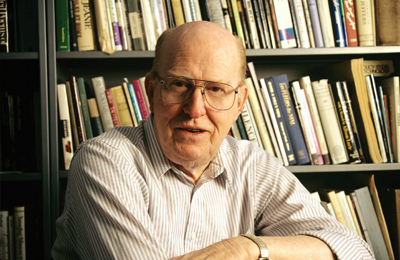Word Spaces (15): Stephen Elliott
 Stephen Elliott‘s post here makes me realize that I should reevaluate some of my assumptions about writers’ work spaces. Because I often write in one room at one desk at a certain time, it’s very easy for me to assume the same about others. This assumption is obviously flawed, but I cannot help myself. Having seen/read this bit about where Elliott gets his work done, I’m reminded that others’ habits can be quite different than mine.
Stephen Elliott‘s post here makes me realize that I should reevaluate some of my assumptions about writers’ work spaces. Because I often write in one room at one desk at a certain time, it’s very easy for me to assume the same about others. This assumption is obviously flawed, but I cannot help myself. Having seen/read this bit about where Elliott gets his work done, I’m reminded that others’ habits can be quite different than mine.
Here’s Stephen Elliott’s essay on his word space.
I don’t always have a “writing space.” I mean, I have an office in the Writers Grotto in San Francisco, that I share with Isaac Fitzgerald. A lot of times there’s empty offices so Isaac sits in Jason’s office, and a lot of times I’m not here, especially recently when I was working on a television show and when I’m traveling, which is more often than I really like.
POWER QUOTE: AR AMMONS

“where i came from it
wouldn’t be smart to talk about art:
talk about sawing logs or getting
the swamp hogs up or worming tobacco
or gutting ditches would be a lot
safer: when in Rome: don’t try to
get the Romans to do what you do.”
(from the poem GLARE)
“The problem with the Milky Way is that we are inside the Milky Way.” –from a (fairly basic) article about galactic cannibalism.
Michael Kimball interviews Gary Lutz at The Faster Times (originally appeared in New York Tyrant).
Really loved The Mysterious Geographic Explorations of Jasper Morello.
(via io9)
James Joyce does not exist

I’ve been thinking a lot lately about books considered legendary, classics, for their language and singularity in time. And then for how those books, over that time, have become books considered timeless and vital to the cause, innovators without which… etc. Joyce, Beckett, Stein, Faulkner, etc. The big names everybody deigns to have read, often via schooling, and who you often hear the more serious critics and often honchos in publishing referring to at large. Seems like I’ve seen or heard of a lot of speech where people in the publishing industry (particularly the larger sections) are talking about their influences and what they like, and many of them referring to these classics, and even if they haven’t said it aloud surely they would not shake their head at the idea that these books are the foundations of how we’ve come to where we are, and etc.
So, then, it becomes confusing to me, in this reckoning, when I think of how most any of these books, if approached today, would not exist. I can’t think of most any publisher, even the major and innovative independents, that would release Ulysses again right now, if instead of an accepted masterpiece, it were a third book by some Irish guy who had published a collection of short fiction and a weird novella. I can’t see even the more edgy presses like Dalkey doing it, or FC2 (EDIT: actually, FC2 recently published Vanessa Place’s La Medusa, which is the closest thing I’ve seen to doing what I’m talking about, which means they might have, maybe), or any of the other countless innovative-based upcroppings. Even the more “languagey” presses often don’t do books that are super-languagey, despite the seeming overwhelming admission that those monsters are the ones that defy time, and sell, perhaps gradually, forever. Maybe it would happen, but it would be a long fight, and a wellspring. I certainly can’t see a major doing it. That kind of freaks me out. Not only in that these works would not exist, but that their influences would not exist either, effectively turning off the power they’ve had in moving things forward over the time they’ve been around.
But those books sold then and sell now (and are curriculum!) for a reason, and part of it is because people since then are being taught not to read what they do not understand. A gradual and stuttered concept that could, over another gradual and stuttered period, be reversed.
bright fish hitch coop and then some: a roundup

Susie & Aretha Bright answer more sex questions at Jezebel, including “I’m a girl who comes too fast.”
Stanley Fish on reforms to college composition courses. And then, a little later, a follow-up column on the reactionary, ill-informed comments directed at him for writing the first column.
Up from Our Own Comments Threads– Ed Champion’s Hate Mail Dramatic Reading Project now includes the letter Kyle Minor posted yesterday in the comments on Catherine Lacey’s post about said project.
Over at Coop’s place, there’s a Spotlight on Danielle Collobert’s “Notebooks.” >> he just left — when he leaves I never know when I’ll see him again — always chance encounters — or nearly — today I asked myself what little errors we’ve let come between us — I don’t know yet — I can barely guess — <<
And Christopher Hitchens remembers Ted Kennedy, as only William Logan can. I know this one sounds like the boring one, but it’s actually the most interesting of what I’ve posted here (except maybe the girl who comes too fast) and it’s utterly unlike any of the other six hundred Kennedy memorials you read or else avoided reading last week.
Actually, Hitch is probably only as interesting as the Benjamin De Casseres piece by Joshua Cohen in Tablet, which I blogged about here the other day (“Hope is the promise of a crucifixion”), but for some reason get the feeling nobody saw. So here it is again.
That’s a Wilde form for a novel
 [Via The Book Design Review]
[Via The Book Design Review]
This is the cover of a new version of The Picture of Dorian Gray published by Four Corners Books in London. It’s published like a magazine, I guess cuz first it was published in a magazine. Any good books coming out in magazines nowadays? Is everybody enjoying Shya Scanlon’s “book,” Forecast? (Speaking of nice design and serialized novels?)
I mean, get outta town, that’s the cover of the book. It’s got a nasty font and a word-
break and it don’t got the title or author or nothing.
Fn-A right, that’s pretty dang wapow. (Even it was reviewed in Financial Times.) I gotta go back to school.
I checked out Four Corners. They have other awesome looking books.
Top of the NYT website right now: a feature story on the troubled production of Where the Wild Things are, the new Spike Jonze movie based on the classic and beloved book of the same name, by Maurice Sendak. Reads the subhead: Spike Jonze is known for making videos and movies his way — fast, cheap and dirty. Sounds like Shanes Jones to me! Anyway, here’s to the future. If WB tries any funny stuff with Light Boxes, Team Giant will be here to lead the ALLCAPS consumer revolt. We’re here for you, boys.
